Transporting acetic acid—a vital chemical in numerous industrial applications—requires meticulous planning, specialized equipment, and adherence to stringent safety standards. At CarMax Trailer, we understand the complexities involved in acetic acid transportation and offer state-of-the-art semi-trailers designed to meet these unique challenges. This comprehensive guide explores the essential aspects of transporting acetic acid, ensuring safety, regulatory compliance, and operational efficiency.
Understanding Acetic Acid: Properties and Applications
Chemical Characteristics of Acetic Acid
Acetic acid (CH₃COOH) is a colorless liquid with a pungent smell, widely recognized as the main component of vinegar apart from water. Its key properties include:
- Concentration: Typically available in concentrations ranging from 4% (household vinegar) to 99.9% (glacial acetic acid).
- Boiling Point: Approximately 118°C (244°F).
- Solubility: Highly soluble in water and many organic solvents.
- Corrosiveness: Exhibits corrosive properties, especially at higher concentrations, necessitating careful handling.
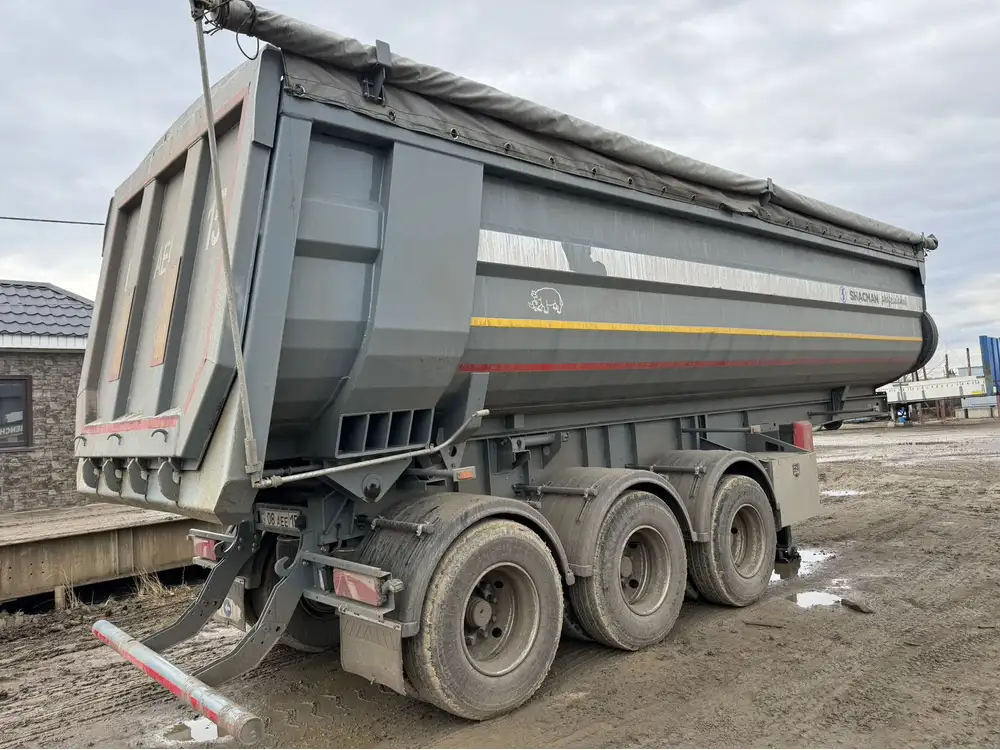
Industrial Applications
Acetic acid is indispensable in various industries, including:
- Chemical Manufacturing: Production of vinyl acetate monomer (VAM), acetic anhydride, and other chemicals.
- Textile Industry: Used in dyeing and finishing processes.
- Food and Beverages: As a preservative and flavoring agent in products like vinegar.
- Pharmaceuticals: Ingredient in the synthesis of certain medications.
- Plastics and Fibers: Essential in producing polymers and synthetic fibers.
Understanding these applications underscores the importance of reliable and safe transportation methods to maintain the integrity of acetic acid during transit.
Challenges in Acetic Acid Transportation
Transporting acetic acid presents several challenges that must be addressed to ensure safety and efficiency:
1. Corrosive Nature
- Issue: Acetic acid’s corrosive properties can degrade transportation containers and trailers.
- Solution: Utilize trailers constructed from corrosion-resistant materials, such as stainless steel or specially coated metals, to prevent container degradation and leakage.
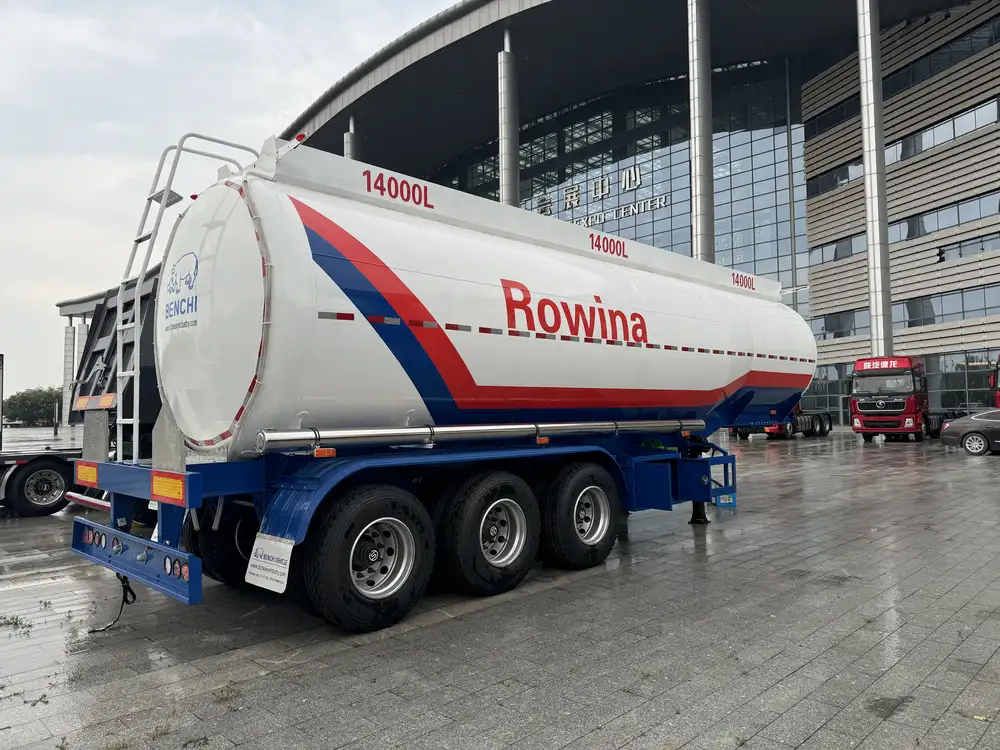
2. Volatility and Evaporation
- Issue: Acetic acid can vaporize, leading to pressure build-up within containers.
- Solution: Equip trailers with appropriate pressure-relief valves and ensure containers are securely sealed to minimize vapor loss and maintain stable concentrations.
3. Temperature Sensitivity
- Issue: Extreme temperatures can affect the stability and pressure of acetic acid.
- Solution: Implement temperature-controlled environments within trailers to maintain optimal conditions, preventing unwanted reactions or pressure fluctuations.
4. Regulatory Compliance
- Issue: Transportation of hazardous materials like acetic acid is subject to strict regulations.
- Solution: Ensure all trailer designs and transportation practices comply with local, national, and international regulations, including proper labeling, documentation, and handling procedures.

CarMax Trailer Solutions for Acetic Acid Transportation
At CarMax Trailer, we offer specialized semi-trailers tailored to the unique requirements of transporting acetic acid. Our solutions emphasize safety, durability, and regulatory compliance, ensuring your acetic acid reaches its destination intact and secure.
Advanced Material Construction
Our trailers are built using high-grade, corrosion-resistant materials to withstand the harsh properties of acetic acid. Features include:
- Stainless Steel Tanks: Prevents corrosion and extends the lifespan of the trailer.
- Protective Coatings: Additional layers to guard against potential chemical reactions.
Enhanced Sealing and Containment
To mitigate the risks of leakage and vapor loss:
- Double-Sealed Containers: Ensure airtight sealing to prevent leaks and minimize vapor escape.
- Pressure-Relief Systems: Integrated valves to safely release excess pressure, maintaining container integrity.
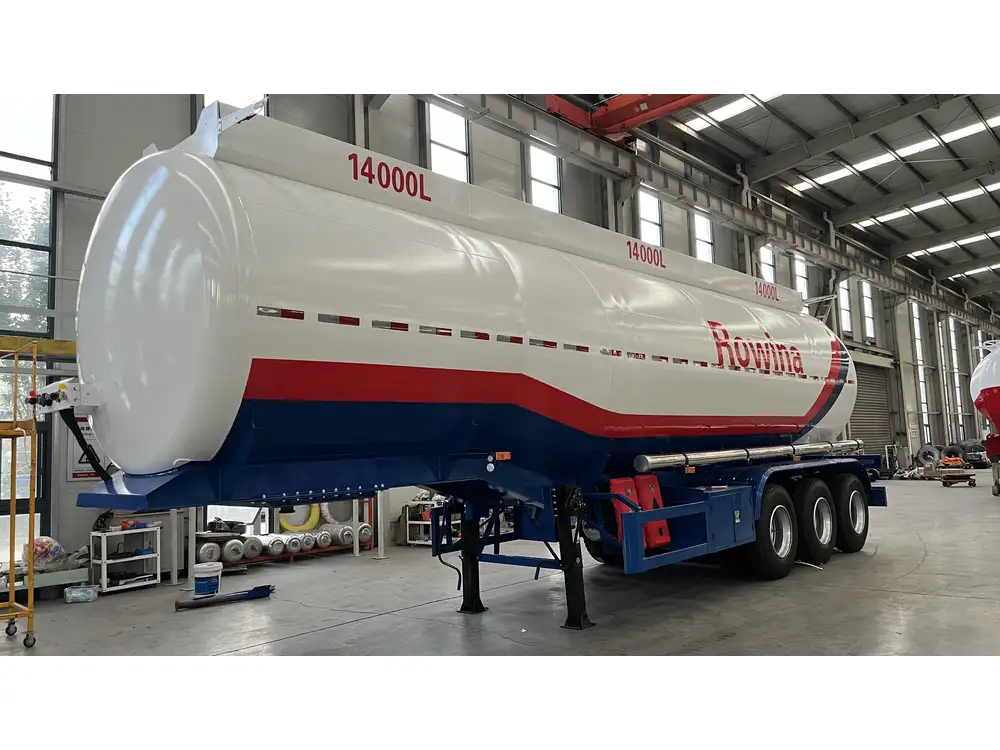
Temperature Control Systems
Maintaining optimal temperature is crucial for acetic acid stability:
- Insulated Trailers: Reduce temperature fluctuations and maintain consistent internal conditions.
- Integrated Cooling Units: Actively regulate trailer temperature during transit, especially in extreme climates.
Compliance and Safety Features
Adhering to safety and regulatory standards is paramount:
- Proper Labeling: Clearly indicate the presence of hazardous materials, complying with transportation laws.
- Safety Venting Systems: Designed to handle accidental over-pressurization events.
- Fire Suppression Systems: Equipped with measures to mitigate fire risks associated with hazardous material transport.
Customizable Configurations
Understanding that each transport requirement is unique, we offer:
- Modular Design Options: Tailor trailer layouts to specific volume and delivery needs.
- Scalable Solutions: Accommodate varying scales of operation, from small batches to large-scale shipments.

Regulatory Framework for Acetic Acid Transportation
Navigating the regulatory landscape is essential to ensure safe and legal transportation of acetic acid. Key regulations include:
1. International Maritime Dangerous Goods (IMDG) Code
- Scope: Governs the transport of hazardous materials by sea.
- Acetic Acid Classification: Typically classified under Class 8 (Corrosive substances).
2. United Nations Recommendations on the Transport of Dangerous Goods
- Guidelines: Provides a standardized framework for classifying and packaging hazardous materials.
- Packaging Requirements: Specifies container types and safety measures for acetic acid transport.
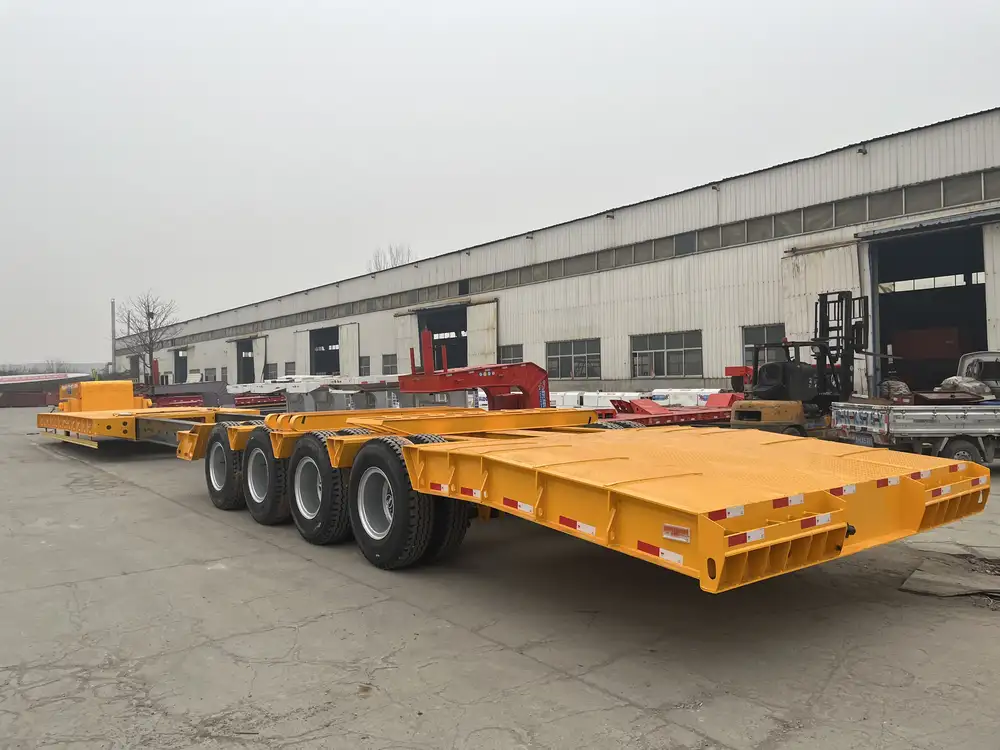
3. U.S. Department of Transportation (DOT) Regulations
- Title 49 CFR: Outlines the rules for hazardous material transportation within the United States.
- Key Provisions: Includes labeling, placarding, and documentation requirements for acetic acid shipments.
4. European Agreement Concerning the International Carriage of Dangerous Goods by Road (ADR)
- Applicability: Regulates the transport of dangerous goods across European countries.
- Compliance: Ensures standardized safety practices and container specifications for acetic acid transport.
5. Occupational Safety and Health Administration (OSHA) Standards
- Focus: Addresses workplace safety for handling hazardous substances.
- Implications: Impacts transportation practices, including loading, unloading, and emergency response procedures for acetic acid.
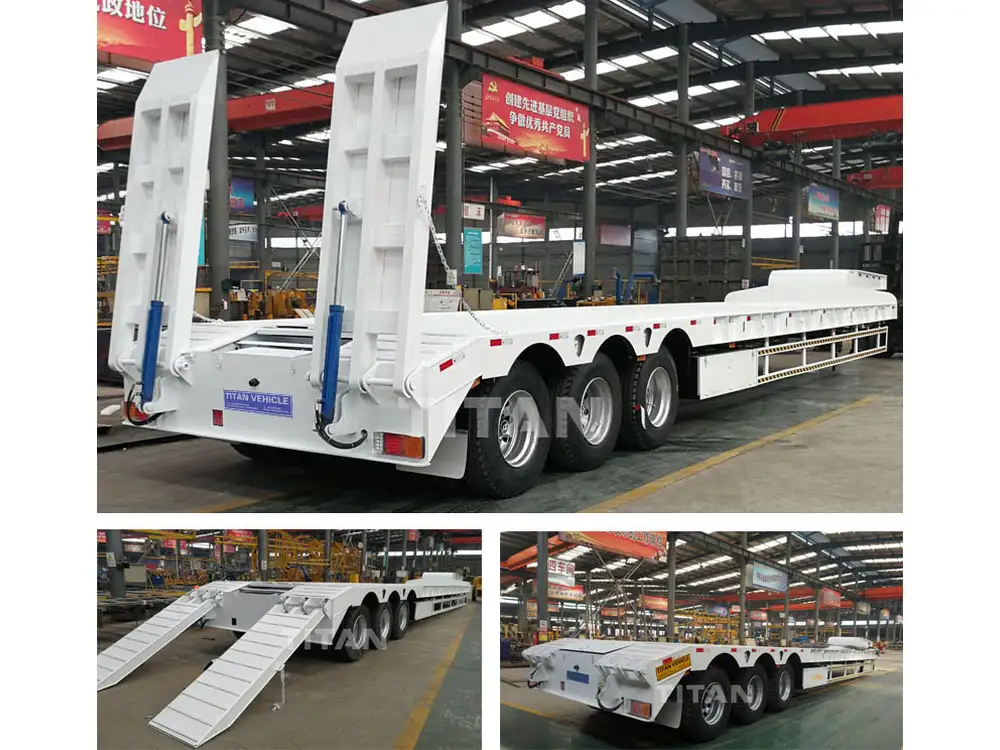
Best Practices for Safe Acetic Acid Transportation
Implementing best practices enhances the safety and efficiency of acetic acid transportation. Key strategies include:
1. Comprehensive Training Programs
- Objective: Equip personnel with the knowledge and skills to handle acetic acid safely.
- Components: Covers safe handling procedures, emergency response protocols, and regulatory compliance.
2. Rigorous Inspection and Maintenance
- Routine Checks: Regularly inspect trailers for signs of wear, corrosion, or damage.
- Preventative Maintenance: Address potential issues proactively to prevent accidents and ensure trailer integrity.

3. Proper Loading and Unloading Procedures
- Techniques: Utilize appropriate equipment and techniques to avoid spills and exposure.
- Supervision: Ensure experienced personnel oversee loading and unloading operations.
4. Emergency Preparedness
- Plans: Develop and implement comprehensive emergency response plans.
- Equipment: Equip trailers with necessary safety gear, including spill containment kits and fire extinguishers.
5. Monitoring and Documentation
- Tracking Systems: Use GPS and other monitoring technologies to oversee trailer locations and conditions in real-time.
- Record-Keeping: Maintain detailed logs of shipments, including quantities, transit conditions, and compliance documentation.

The CarMax Trailer Advantage
Choosing CarMax Trailer for acetic acid transportation offers numerous benefits that set us apart in the industry:
1. Expertise and Experience
With years of specialization in hazardous material transport, CarMax Trailer understands the intricacies of acetic acid logistics, ensuring reliable and safe delivery.
2. Cutting-Edge Technology
Our trailers incorporate the latest technological advancements, including:
- Smart Monitoring Systems: Real-time tracking of temperature, pressure, and location.
- Automated Safety Features: Enhance operational safety and efficiency.
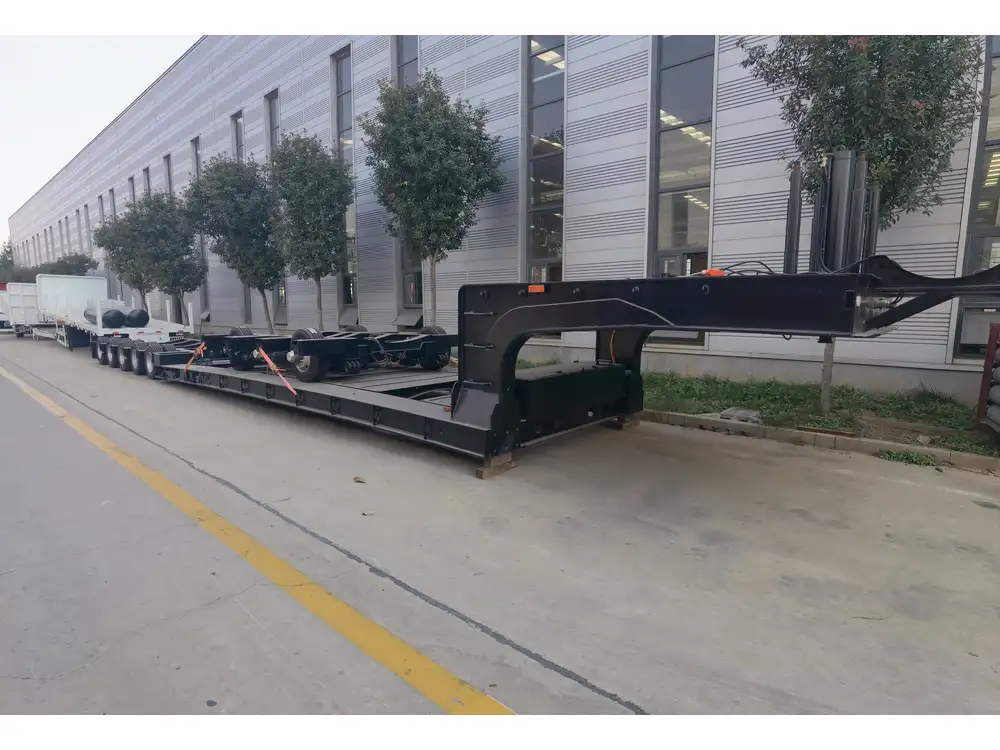
3. Customization and Flexibility
We offer tailored solutions to meet diverse transportation needs, accommodating different volumes, routes, and client specifications.
4. Commitment to Sustainability
CarMax Trailer prioritizes environmentally friendly practices, utilizing materials and technologies that reduce our carbon footprint and promote sustainable transportation.
5. Superior Customer Support
Our dedicated support team assists clients from initial consultation to final delivery, ensuring a seamless and satisfactory transportation experience.
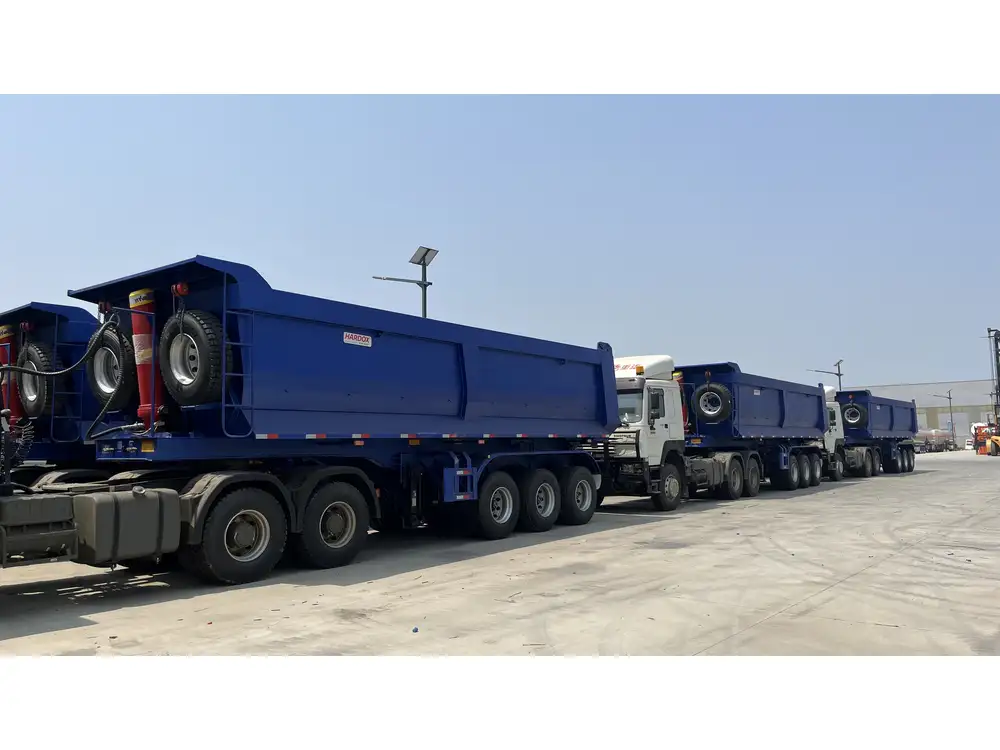
Case Study: Acetic Acid Transportation Success with CarMax Trailer
Client Background
A leading chemical manufacturer required the safe and efficient transportation of large quantities of high-concentration acetic acid to various industrial clients across multiple states.
Challenges
- High Volume Shipments: Necessitated robust and reliable trailer solutions.
- Stringent Safety Requirements: Compliance with diverse regional and national regulations.
- Temperature Control Needs: Maintaining acetic acid stability during transit.

CarMax Trailer Solution
- Customized Semi-Trailers: Designed with stainless steel tanks and advanced sealing systems.
- Integrated Temperature Control: Ensured consistent internal conditions throughout transport.
- Compliance Assurance: All trailers met relevant regulatory standards, with comprehensive documentation provided.
Outcome
The client experienced a significant reduction in transit-related incidents, improved delivery times, and enhanced overall satisfaction. CarMax Trailer’s solutions facilitated seamless operations, reinforcing the client’s trust in our expertise.
Future Trends in Acetic Acid Transportation
Staying ahead of industry trends ensures continued excellence in acetic acid transportation. Emerging trends include:

1. Automation and IoT Integration
- Smart Trailers: Utilize IoT devices for real-time monitoring and automated adjustments to maintain optimal conditions.
- Predictive Maintenance: Leverage data analytics to anticipate and prevent equipment failures.
2. Sustainable Transportation Practices
- Electric and Hybrid Trailers: Reduce carbon emissions and promote eco-friendly transportation.
- Energy-Efficient Systems: Implement technologies that lower energy consumption without compromising performance.
3. Enhanced Safety Protocols
- Advanced Safety Features: Incorporate next-generation safety mechanisms to further minimize risks.
- Comprehensive Training: Evolve training programs to address new technologies and regulatory changes.
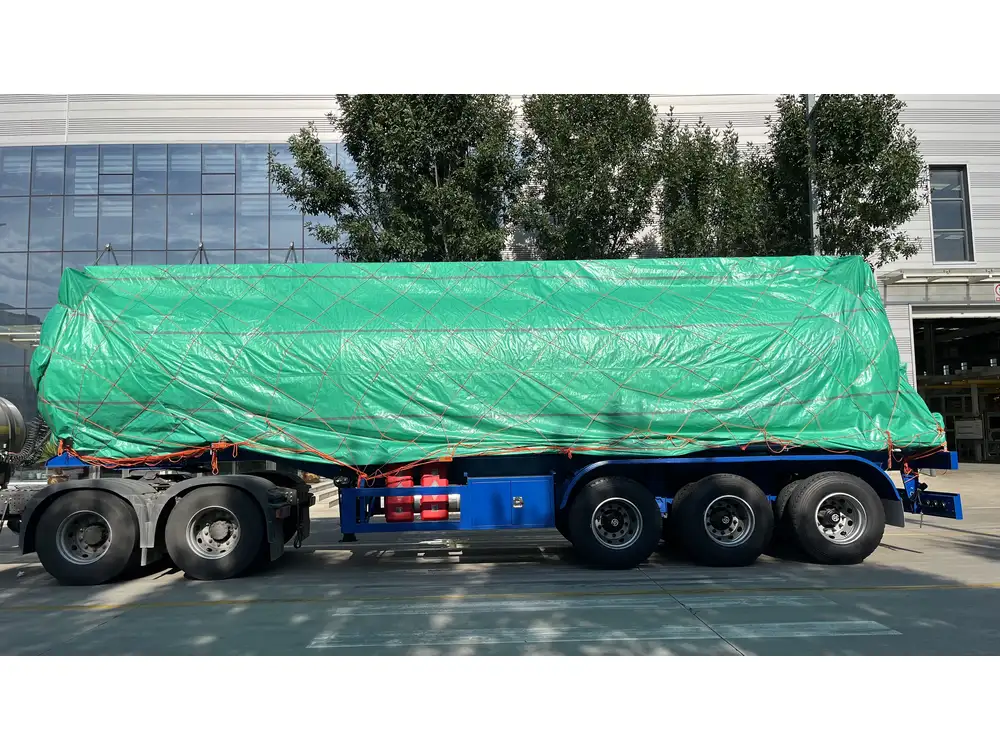
4. Global Compliance Management
- Unified Standards: Develop systems to manage and comply with varying international regulations seamlessly.
- Documentation Automation: Streamline paperwork through digital solutions, reducing errors and administrative burdens.
5. Data-Driven Decision Making
- Analytics Platforms: Utilize data to optimize routes, improve efficiency, and enhance overall transportation strategies.
- Real-Time Insights: Access immediate information on trailer conditions and shipment statuses for proactive management.
Selecting the Right Trailer for Acetic Acid Transportation
Choosing the appropriate trailer is crucial for the safe and efficient transport of acetic acid. Consider the following factors:
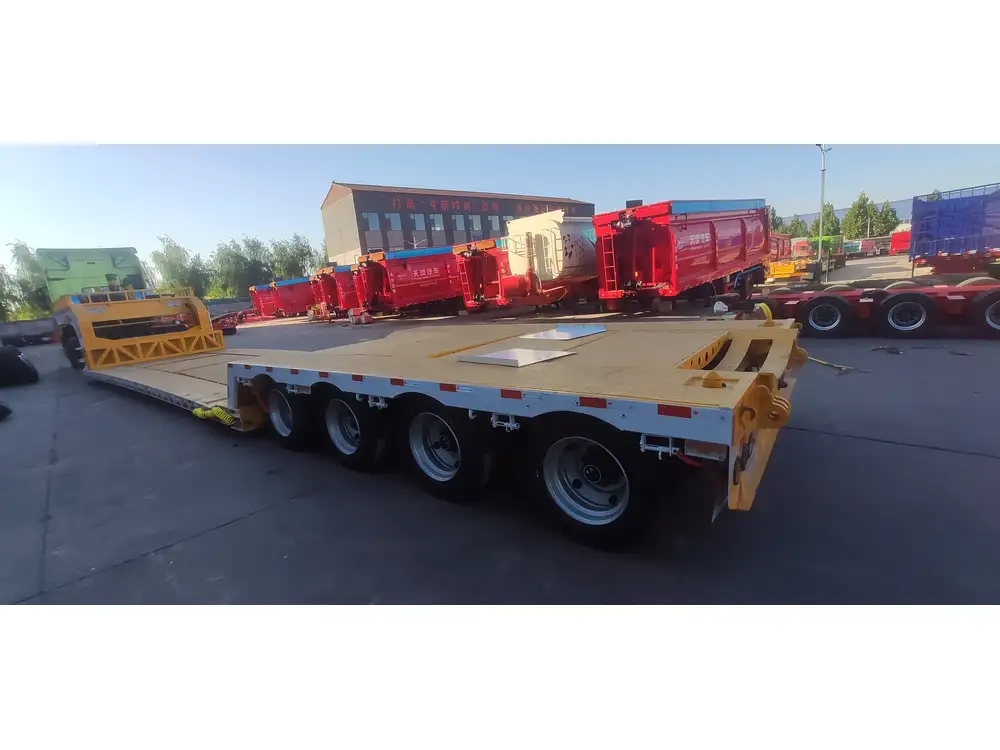
1. Trailer Material
- Stainless Steel vs. Aluminum: Assess the corrosion resistance, durability, and cost-effectiveness of different materials.
- Coating Options: Evaluate additional protective coatings for enhanced chemical resistance.
2. Capacity and Volume
- Tank Size: Align trailer capacity with shipment volumes to optimize load efficiency.
- Modular Designs: Choose trailers that offer flexibility for varying shipment sizes and types.
3. Safety Features
- Emergency Systems: Ensure trailers are equipped with necessary safety equipment, such as fire suppression and spill containment.
- Leak Detection: Implement advanced leak detection systems to identify and address issues promptly.
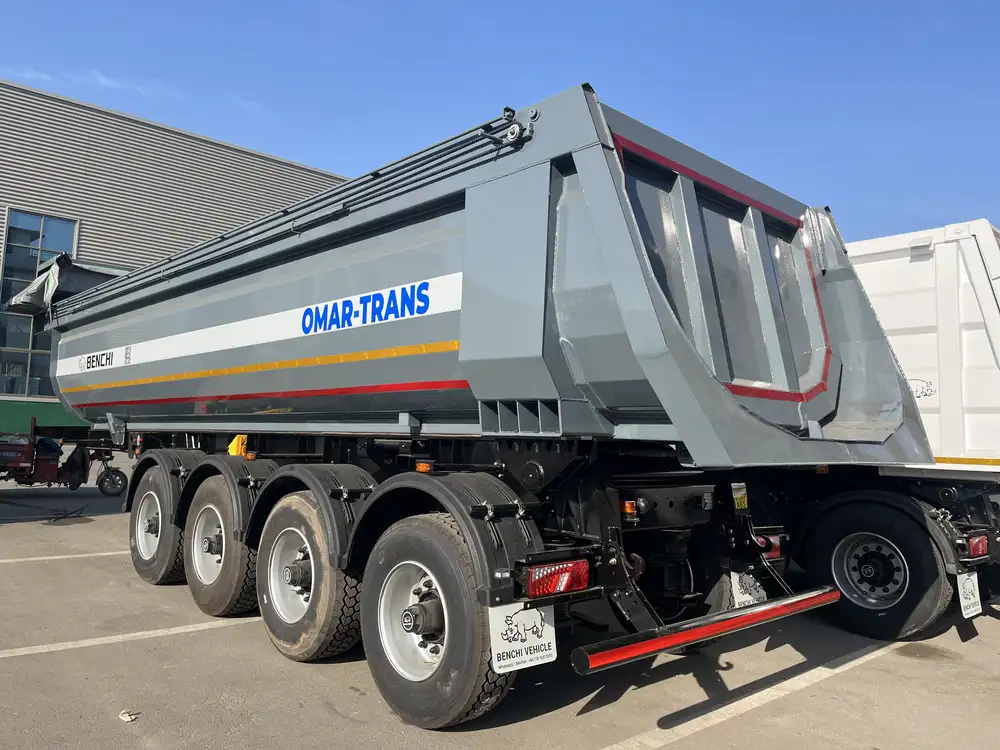
4. Regulatory Compliance
- Certification and Standards: Verify that trailers meet all relevant regulatory requirements for acetic acid transport.
- Documentation Support: Ensure availability of comprehensive documentation and labeling systems for compliance.
5. Technological Enhancements
- Monitoring Systems: Opt for trailers with integrated monitoring technologies for real-time oversight.
- Automation Capabilities: Consider the benefits of automated systems for improved operational efficiency and safety.
Cost Considerations in Acetic Acid Transportation
Balancing cost with safety and efficiency is essential in acetic acid transportation. Key cost factors include:
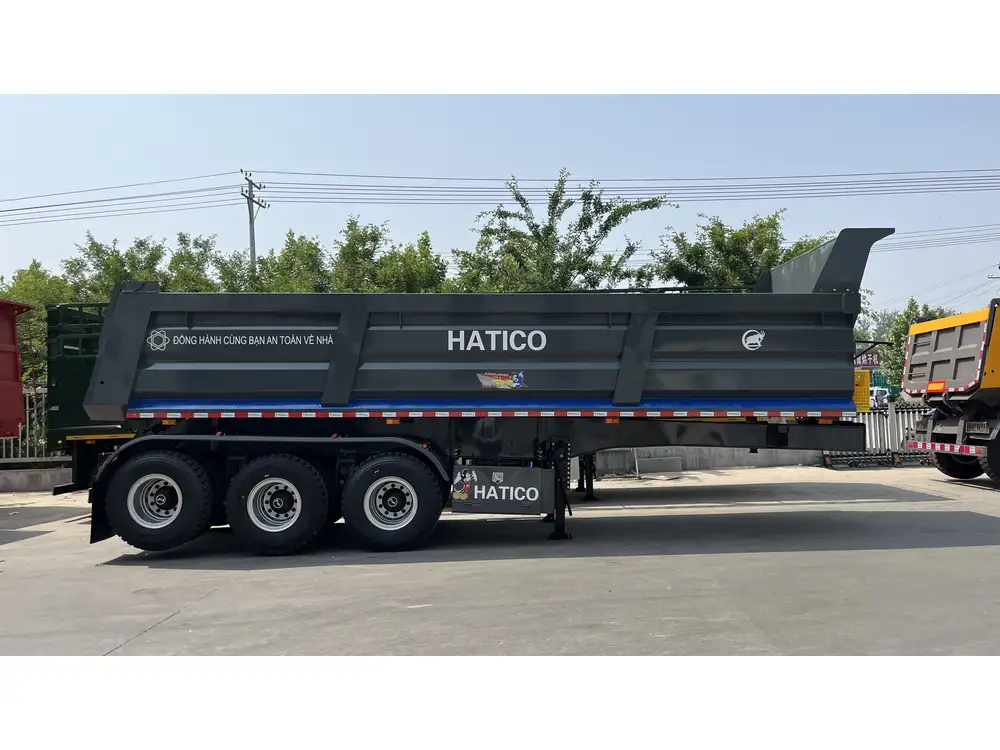
1. Initial Investment
- Trailer Purchase: Higher initial costs for specialized, corrosion-resistant trailers may be offset by longer lifespan and reduced maintenance.
- Customization Expenses: Tailored features add to upfront costs but enhance operational performance.
2. Operational Costs
- Fuel Efficiency: Opt for energy-efficient trailers to lower fuel expenses over time.
- Maintenance and Repairs: Regular upkeep can prevent costly repairs and extend trailer longevity.
3. Compliance Costs
- Regulatory Fees: Budget for necessary permits, certifications, and compliance-related expenses.
- Training Programs: Invest in comprehensive training to ensure safety and regulatory adherence, reducing the risk of violations and associated fines.

4. Insurance
- Coverage Needs: Ensure adequate insurance coverage for hazardous material transport, factoring in trailer value and risk profiles.
- Premium Costs: Higher quality trailers with enhanced safety features may qualify for lower insurance premiums.
5. Long-Term Savings
- Durability: Investing in robust trailers reduces the frequency and cost of replacements.
- Efficiency Gains: Streamlined operations and minimized downtime contribute to overall cost savings.
Enhancing Operational Efficiency with CarMax Trailer
Optimizing operational efficiency not only reduces costs but also improves service quality. CarMax Trailer offers various features and services to enhance your transportation operations:

1. Streamlined Loading Processes
- User-Friendly Designs: Facilitate quick and efficient loading and unloading, reducing turnaround times.
- Automated Systems: Integrate automated loading mechanisms for increased speed and accuracy.
2. Route Optimization
- Advanced Planning Tools: Utilize software solutions to plan the most efficient routes, minimizing travel time and fuel consumption.
- Real-Time Traffic Monitoring: Adjust routes dynamically based on current traffic conditions to avoid delays.
3. Fleet Management Solutions
- Centralized Oversight: Manage multiple trailers seamlessly with integrated fleet management systems.
- Maintenance Scheduling: Automate maintenance schedules to ensure all trailers are in optimal condition, preventing unexpected downtimes.

4. Enhanced Communication Systems
- Integrated Communication Tools: Maintain constant communication between drivers and dispatchers for coordinated operations.
- Alert Systems: Receive real-time alerts on trailer conditions, enabling prompt responses to any issues encountered during transit.
5. Data Analytics and Reporting
- Performance Metrics: Analyze key performance indicators to identify areas for improvement.
- Customized Reports: Generate detailed reports on shipments, trailer usage, and operational efficiency to inform strategic decisions.
Sustainability in Acetic Acid Transportation
Embracing sustainable practices is increasingly important in the modern transportation landscape. CarMax Trailer is committed to promoting sustainability through:
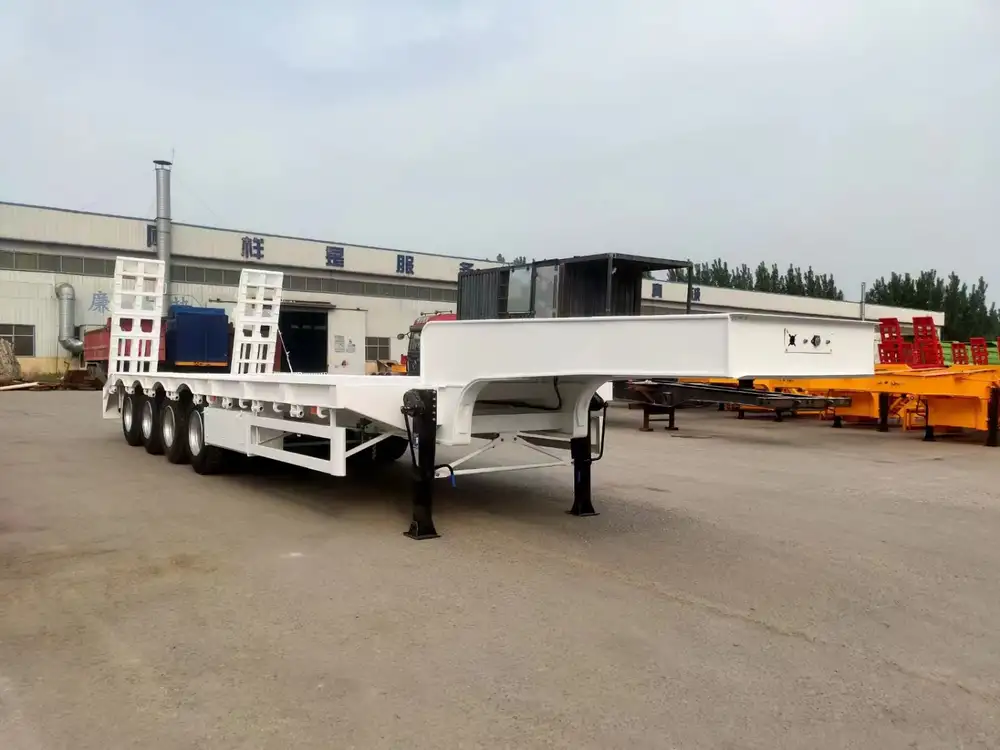
1. Eco-Friendly Materials
- Recyclable Components: Utilize materials that can be recycled, reducing environmental impact.
- Low-Emission Manufacturing: Implement production processes that minimize greenhouse gas emissions.
2. Energy-Efficient Operations
- Fuel Optimization: Design trailers for maximum fuel efficiency, lowering overall energy consumption.
- Alternative Energy Sources: Explore the integration of renewable energy sources in trailer systems.
3. Waste Reduction
- Spill Prevention: Incorporate advanced containment systems to prevent leaks and spills, minimizing environmental contamination.
- Recycling Programs: Establish programs for recycling excess materials and components from trailer production and maintenance.
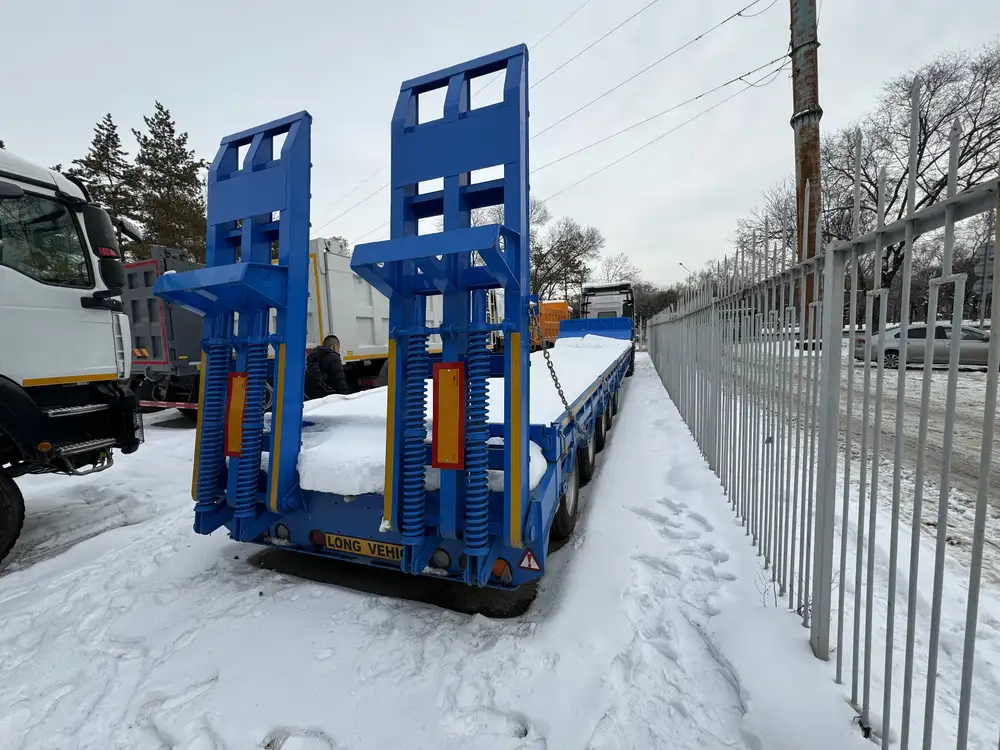
4. Regulatory Alignment
- Compliance with Environmental Standards: Ensure all trailers meet or exceed environmental regulations, contributing to broader sustainability goals.
- Continuous Improvement: Regularly update practices to align with emerging sustainability trends and technologies.
Conclusion
Transporting acetic acid demands specialized knowledge, robust equipment, and unwavering commitment to safety and efficiency. CarMax Trailer stands at the forefront of providing tailored semi-trailer solutions that address the unique challenges of acetic acid transportation. By leveraging our expertise, advanced technology, and dedication to regulatory compliance, we ensure that your acetic acid shipments are handled with the utmost care and precision.
Partner with CarMax Trailer to experience unparalleled reliability and excellence in acetic acid transportation, driving your business forward with confidence and security.
Frequently Asked Questions (FAQs)
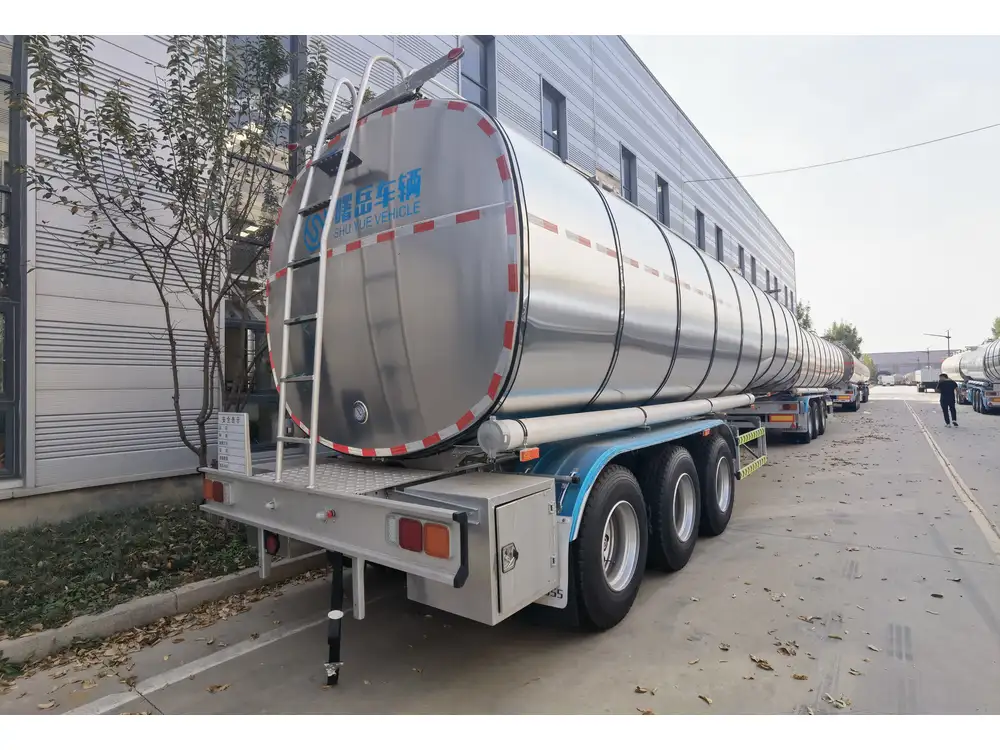
1. What makes CarMax Trailer suitable for transporting acetic acid?
CarMax Trailer offers specialized semi-trailers constructed from corrosion-resistant materials, equipped with advanced sealing and temperature control systems, ensuring safe and efficient transportation of acetic acid. Our trailers comply with all relevant regulations, providing peace of mind and operational reliability.
2. How does CarMax Trailer ensure compliance with international transportation regulations?
We meticulously design our trailers to meet international standards such as the IMDG Code, UN Recommendations, DOT regulations, and ADR requirements. Additionally, we provide comprehensive documentation and labeling to ensure all shipments adhere to regional and global transportation laws.
3. Can CarMax Trailer accommodate varying volumes of acetic acid shipments?
Yes, our trailers are customizable to handle different shipment sizes and volumes. Whether you require small batch deliveries or large-scale transportation, CarMax Trailer offers scalable and flexible solutions to meet your specific needs.
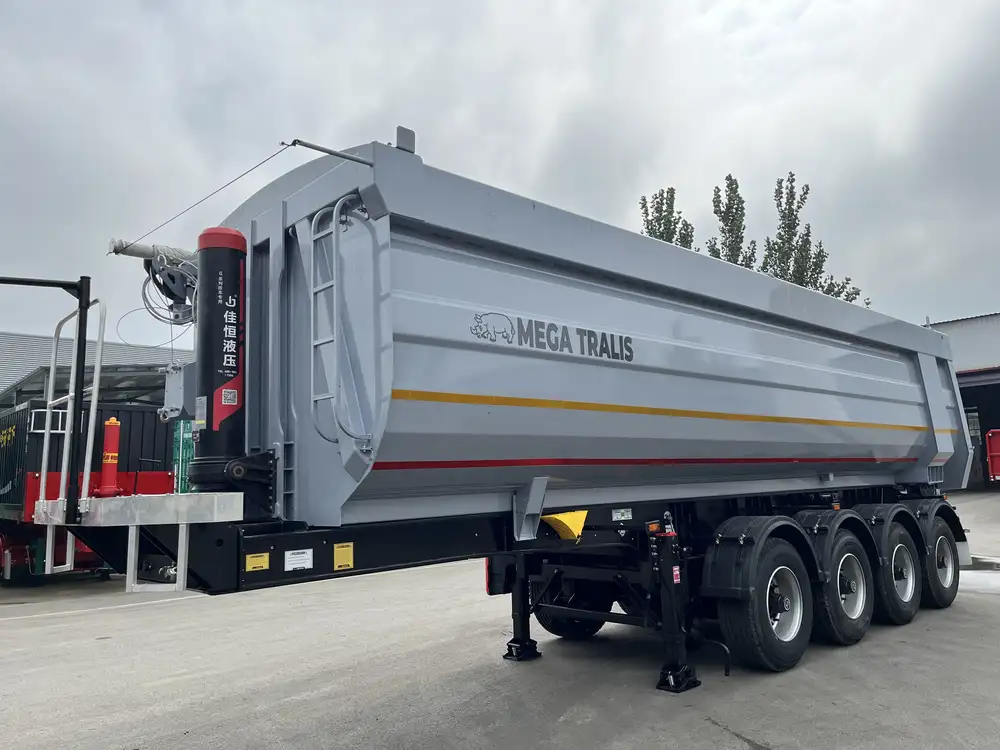
4. What safety features are included in CarMax Trailer’s design for acetic acid transport?
Our trailers are equipped with double-sealed containers, pressure-relief valves, fire suppression systems, spill containment kits, and integrated leak detection technologies. These features collectively enhance the safety and integrity of acetic acid shipments during transit.
5. How does CarMax Trailer support sustainability in acetic acid transportation?
We prioritize sustainability by using eco-friendly materials, implementing energy-efficient systems, and adopting waste reduction practices. Our commitment to sustainable transportation helps reduce environmental impact while maintaining high operational standards.



